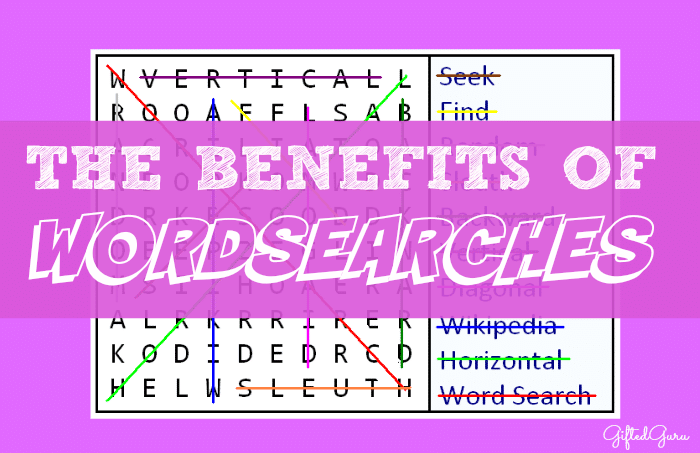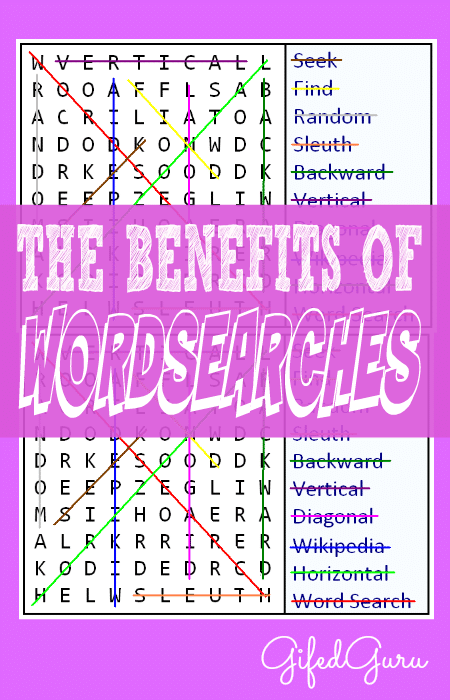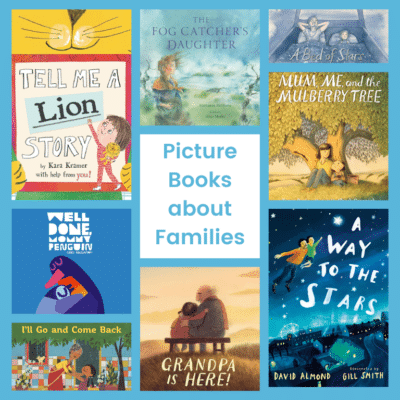Before I talk about the benefits of wordsearches, let’s acknowledge the haters.
Wordsearches get a bad rap. There’s a lot to hate about wordsearches.
They look a lot like busywork. They look really low level. They look like everything wrong with a worksheet culture. They look ridiculous next to advanced products and activities. They can be frustrating, especially for students with a learning difference. I’m the first to admit, they’re not for everything (but what single technique is?).
I’m going to share the benefits of wordsearches, and why I think you just may get converted!
They Help Develop Word Recognition
What looks obvious to an adult (find this word in a sea of words) is far more complicated to an emerging reader who is learning to tell the difference between a word that begins g-r-e-a- and a word that begins g-r-e-e.
They’re a beginning, in other words.
They Assist in Learning Context Clues
There are several kinds of context clues that build fluency, some of which can be developed in wordsearches.
- Semantic or Meaning Clues – When you read about cars, you expect to find words like road, steer, tire and windshield.
- Picture Clues – Images can give us clues to words and their meanings. Teachers can create wordsearches that have pictures for clues, rather than the words themselves. This is especially effective if they are kept in families. For example, a science teacher could have pictures of types of cloud formations as clues, with the students searching for nimbus, etc. in the puzzle. While they are searching, they have the word and its image in their minds.
They Help Develop Pattern Recognition
Ah, the letter Q actually is followed by a U. I know because I searched for all of those Q words, and they all had a U after them as well. Oh! And T often has an H after it. And words that end with -a-m-e all rhyme!
This organic discovery of patterns, in combination with other strategies of course, is one step towards fluency.
They Introduce and Review Vocabulary
Academic vocabulary is a key to mastery of any discipline. Scholars know the vocabulary of their discipline, and the first step towards vocabulary is exposure to the word itself.
You can use wordsearches to do this, and you can use wordsearches for a self-test review. I see and find the word, and I highlight it if I can’t define or use it.
S-P-E-L-L-I-N-G
Some of us are natural born spellers (Oh, how I love me a spelling bee), while others of us recite little ditties to remember the order of letters.
We’ve all seen the failings of spellcheck, and there is no ideal substitute for actually knowing how to spell. People with dyslexia understand the struggle this presents in everyday life, and would not dismiss it as simplistic or useless. It’s easy to take lightly what comes easily.
Wordsearches can help students learn the basics of spelling by seeing the same word in the context of its word family.
They Are Fun
A lot of us actually like completing word searches. Don’t believe me? Check out the magazine section of your local store. You’ll see that people actually pay cold, hard cash for books of wordsearches. It’s true.
They can be created around student interest, making them one of the most simple ways to differentiate for student interest in the known universe.
They work great for those small moments of time because they can be stopped and started easily, unlike some activities.
You Can Make Them Higher Level
Teachers can raise the thinking level of wordsearches in a couple of ways.
- Have students create them by evaluating a text and having them create a wordsearch of a certain set of words (most important, inferential, adjectives, figurative language, adverbs, prepositions, descriptive, etc.).
- Students can complete the wordsearch and then create words out of the remaining letters.
- Give a wordsearch with no word bank and ask students to search for as many words as they can find related to a topic or story.
Wrap-Up
When I started my Teachers Pay Teachers store (you can read about that decision here), I decided that I was going to only put in quality things I could stand behind. I decided that both wordsearches and crossword puzzles would have a place in the store for all of the reasons I listed above.
Are they perfect for everyone all of the time? Absolutely not.
Are there other strategies that do all of these things? Yes.
Is there a place for them in the classroom? In many cases, I believe there is.
It’s become common in contemporary pedagogy to dismiss certain things (wordsearches, posters, etc.) out of hand. That’s throwing the baby out with the bath water. Virtually any technique can be made to be awesome in the right hands, and wordsearches are no different.
If you’re interested in mine, you can find one on math vocabulary for 4th grade here.






